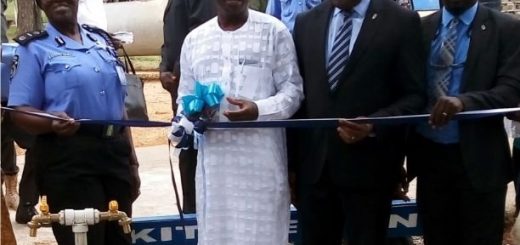Kaduna, Kebbi, and Bauchi gets UNICEF, Canada $15 Million Health Grant
By Uangbaoje Alex, Kaduna
In a major move to strengthen health systems and improve the well-being of women, adolescents, and children in northern Nigeria, UNICEF and Global Affairs Canada have launched a $15 million Canadian dollars initiative targeting Kaduna, Kebbi, and Bauchi states.
The five-year project, implemented by UNICEF, is designed to enhance sexual and reproductive health and rights (SRHR), with a strong focus on adolescent girls, women of childbearing age, and children under five. The initiative seeks to address critical health challenges and capacity gaps at the state and local government levels, as well as within community systems.

Speaking during a two-day State Engagement meeting in Kaduna on Tuesday, Dr. Cheshi Fatima, a Health Specialist at UNICEF Nigeria, emphasized the importance of the grant in building resilient healthcare systems.
“This funding is aimed at improving the capacities of government institutions and community systems to deliver quality sexual and reproductive health services. It will ensure that adolescents and young mothers have access to the care and support they need,” she said.
Dr. Fatima noted that the three states were selected due to their high burden of poor health indices, especially among adolescent populations.
“Adolescent girls in the northern region are often overlooked in healthcare delivery. Many are denied basic maternal services simply because of their age. This initiative will help change that by strengthening the ability of health facilities to provide inclusive, respectful, and rights-based care.”
The project will support training for health workers, procurement of essential maternal and child health commodities, improved data collection, and behavioral change communication. It will also promote collaboration across sectors—linking healthcare with education, agriculture, and human services to ensure a holistic approach to adolescent health and nutrition.
“This is not just about treating illness, It’s about education, prevention, and empowerment. We are helping these states build systems that support young girls from the community level up to the health facility,” Dr. Fatima explained.
Reacting to the announcement, Dr. Aisha Abubakar Sadiq, Permanent Secretary of the Kaduna State Ministry of Health, described the initiative as “timely and transformative,” given the state’s ongoing battle with high maternal and child mortality rates.

“The state has recorded maternal mortality rates that are higher than national averages. While our neonatal and infant mortality rates have not exceeded national values, they are still unacceptably high. We are losing mothers and children at an alarming rate across different LGAs,” Dr. Sadiq said.
While describing the mood within the state government over the new grant, Dr. Sadiq stated, “Delighted is not even enough. We are ecstatic. This grant recognizes our efforts and gives us the resources to continue improving the lives of Kaduna citizens.”
“This support will improve access to commodities, last-mile delivery, and the skills of our health workforce,” Dr. Sadiq explained. “It will also enhance our data collection and analysis, which can attract even more support in the future.
“The interventions will extend beyond hospitals into the communities. Engaging men, especially husbands, as well as religious and traditional leaders, will be key to changing societal attitudes and ensuring long-term success,” she noted.
She outlined several systemic challenges, including shortages in healthcare personnel, referral inefficiencies, logistical problems, and the rising cost of care—all of which have strained Kaduna’s healthcare system, expressing the State’s readiness to use the grant to address the gaps.
With the partnership, UNICEF and Global Affairs Canada aim to accelerate progress toward achieving better maternal and child health outcomes in Nigeria, while also ensuring that no adolescent is left behind due to stigma or systemic gaps in care.


